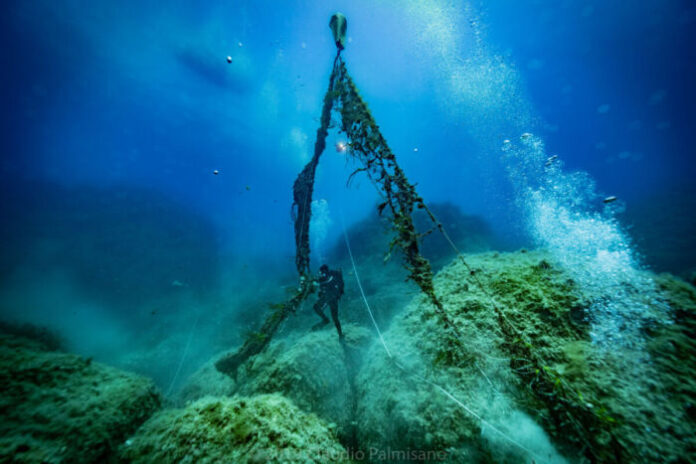
Dozens of tons of fishing nets lie on the seabed of the Mediterranean, carried by currents or abandoned more or less intentionally by fishermen over centuries of history. A very serious problem because these nets, if left in the sea, continue to passively “catch” fish, cetaceans, turtles and sea birds, which remain trapped in these real “walls of death”.
The problem of ghost nets should not be underestimated because they enormously damage the marine habitat, altering its delicate ecosystem also through the release of the dreaded microplastics. Furthermore, they represent a real danger to the safety of divers and swimmers.
It is for this reason that a year ago “Ghost Nets” was launched, the project of the Italian Ministry of the Environment to free our seas from fishing nets abandoned on the seabed. The budget of the latest operation is six tons of nets removed from the depths of our seas and set off on the correct path for destruction.
The initiative is part of the “PlasticFreeGC” project to combat the dispersion of microplastics in the sea, launched in July 2019 in Fiumicino in the presence of the Minister of the Environment Sergio Costa, the Commander General of the Coast Guard Giovanni Pettorino.
The operation involved the use of the underwater component of the Coast Guard, aimed at the recovery of fishing nets abandoned in the seabed of our Peninsula.
“The activity conducted by the underwater units of the Coast Guard – explains the Minister – led to the removal from the seabed of 6 tons of plastic dispersed in the sea equal, by way of example, to about 200 thousand plastic bottles abandoned on the seabed”.
“An important result – continues the Minister – if we think that ghost nets are responsible for the alteration of the marine ecosystem due to the dispersion in the environment of the synthetic micro-particles of which they are composed”.
Following the operation, a first general mapping was carried out, showing the location of the ghost nets along the coasts, and continuously updated with operational information found in the area.
The operation is still in progress and will continue in the coming months, as will the communication campaign on the issue of environmental sensitivity, conducted by the Ministry of the Environment and the General Command of the Coast Guard.



































